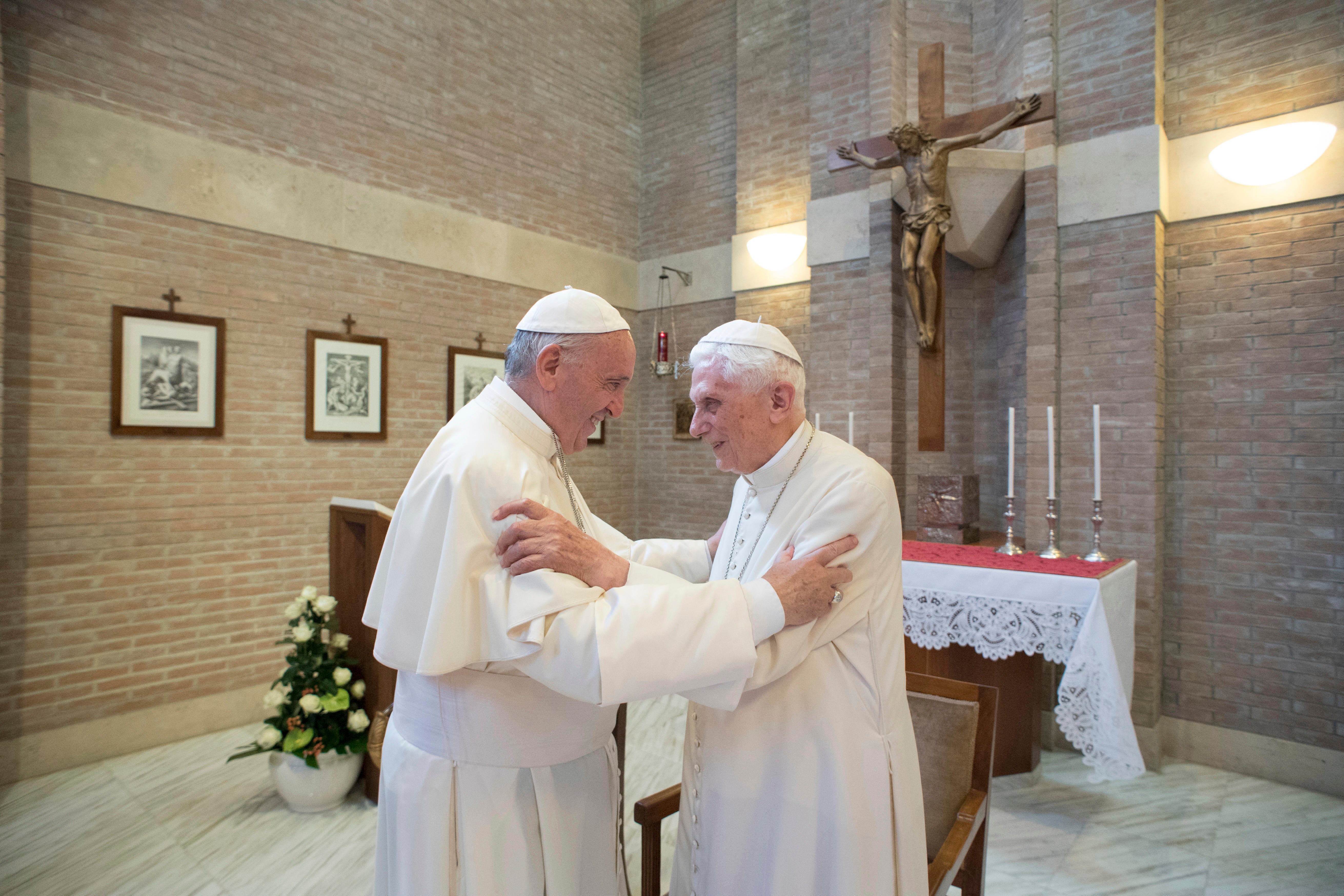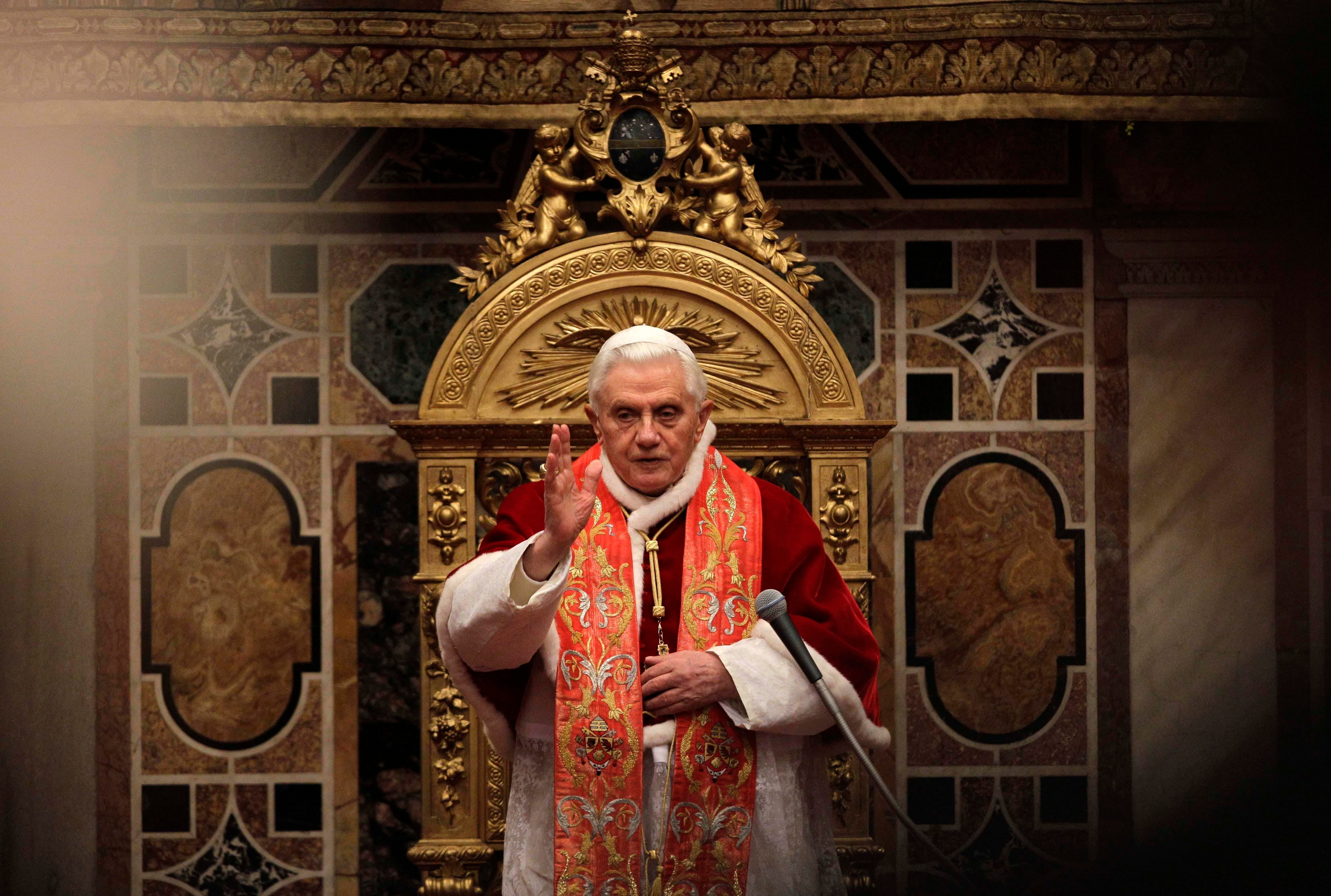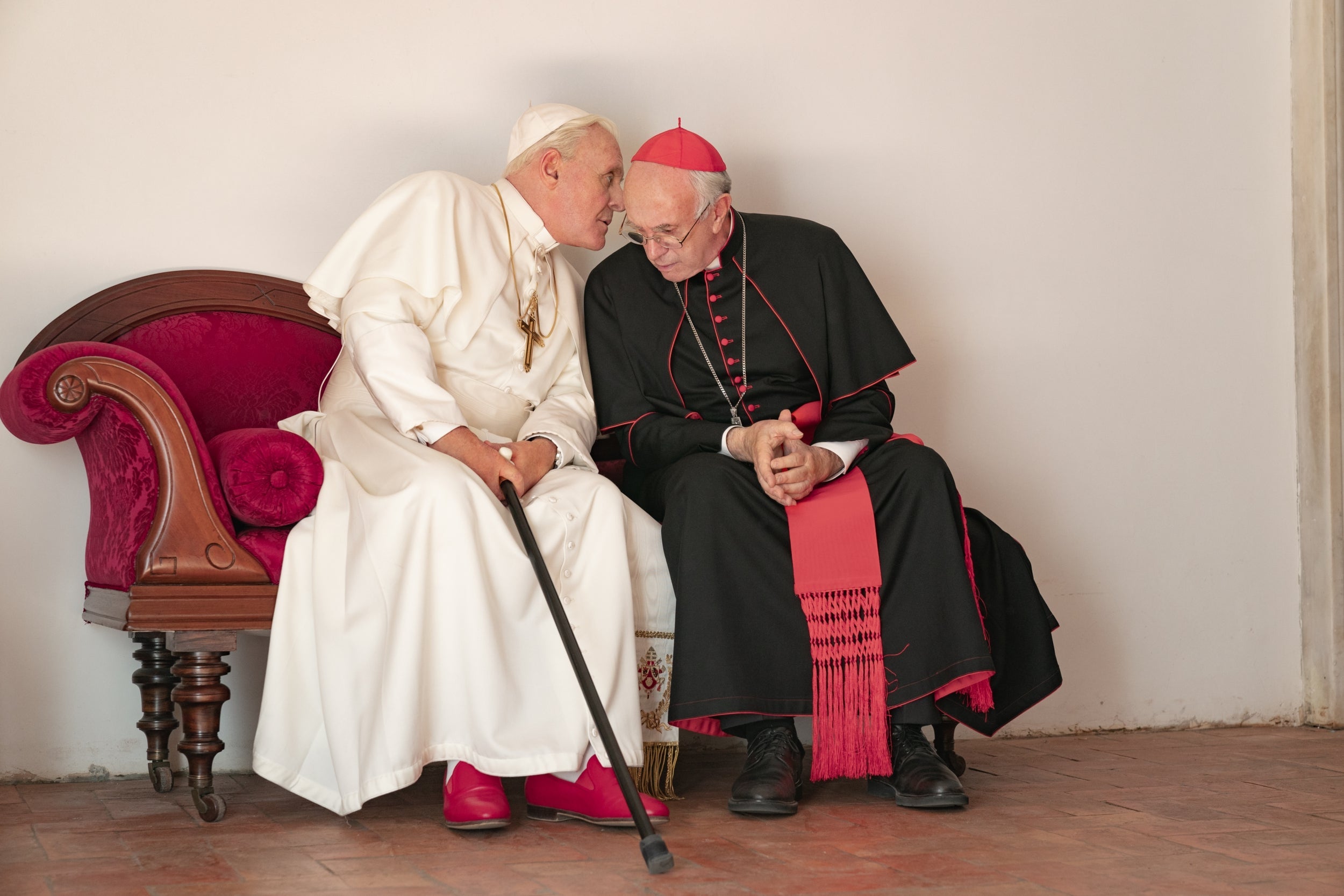Who is former pope Benedict XVI
The former pope was once known as ‘God’s Rottweiler’ for his hardline conservative views
Your support helps us to tell the story
From reproductive rights to climate change to Big Tech, The Independent is on the ground when the story is developing. Whether it's investigating the financials of Elon Musk's pro-Trump PAC or producing our latest documentary, 'The A Word', which shines a light on the American women fighting for reproductive rights, we know how important it is to parse out the facts from the messaging.
At such a critical moment in US history, we need reporters on the ground. Your donation allows us to keep sending journalists to speak to both sides of the story.
The Independent is trusted by Americans across the entire political spectrum. And unlike many other quality news outlets, we choose not to lock Americans out of our reporting and analysis with paywalls. We believe quality journalism should be available to everyone, paid for by those who can afford it.
Your support makes all the difference.Former pope Benedict, who Pope Francis said on Wednesday was “very sick”, resigned in 2013, the first pontiff in 600 years to take such a step rather than rule for life.
Benedict XVI was the first German pope in 1,000 years, was elected on 19 April 2005 succeeding Pope John Paul II, who reigned for 27 years.
For nearly 25 years, the former pope, then known as Cardinal Joseph Ratzinger, was the powerful head of the Vatican’s doctrinal office, the Congregation for the Doctrine of the Faith (CDF). As a theological conservative, Mr Ratzinger left Germany and his post as archbishop of Munich in 1982 to head the CDF. His disciplining of Latin American priests who promoted Marxist-influenced Liberation Theology bestowed him with the sobriquet “God's Rottweiler”.
Despite his reputation as a hardliner, his eight-year papacy was marked by missteps and scandal. He admitted a “lack of resolve in governing and decision taking.”
He antagonised Muslims by appearing to suggest that Islam was inherently violent. He angered Jews by rehabilitating a Holocaust denier and prompted international dismay by saying the use of condoms in the fight against Aids only worsened the problem.
The 2012 “Vatileaks” scandal helped unravel his papacy when Paolo Gabriele, Benedict's butler, leaked secret documents that revealed corruption and feuding within the Vatican. Benedict said he stood down because bad health prevented him from bearing the full weight of the papacy.
Child abuse scandals also hounded most of his papacy but he is credited with jump starting the process to discipline or defrocking of predator priests after a more lax attitude under John Paul II. He ordered an inquiry into abuse in Ireland, which led to the resignation of several bishops.
He also disciplined the late Father Marcial Maciel, founder of the Catholic order the Legionaries of Christ and one of the Church's most notorious predators.

The Vatican under Pope John Paul II had failed to take action against Maciel despite overwhelming evidence of his crimes.
In 2022, an independent report in Benedict's native Germany alleged that he had failed to take action in four cases when he was Archbishop of Munich between 1977 and 1982. The frail former pope acknowledged in an emotional personal letter that errors had occurred and asked for forgiveness. His lawyers argued in a detailed rebuttal that he was not directly to blame.
He attempted to keep a low profile after his retirement but the former pope wrote, gave interviews and publicly opposed Pope Francis.
Some supporters still regarded him the head of the Catholic church, referring to him as “my pope.”

The “two popes” confusion was compounded because he chose to continue wearing white and be known as “pope emeritus” resulting in polarisation that led to calls from both conservatives and liberals for changes in Church law to regulate the functions and status of former popes.
Benedict’s relationship with Pope Francis was the topic of the 2019 Netflix film, Two Popes where Welsh Oscar winner Anthony Hopkins played the controversial church leader and Jonathan Pryce played his successor.

Benedict produced more than 60 books between 1963, when he was a priest, and 2013, when he resigned.
“In reality I am more of a professor, a person who reflects and meditates on spiritual questions,” Benedict said after his resignation.
He also played the piano and had a preference for Mozart and Bach. As a classicist, he frowned on rock and roll as an “expression of base passions” and once called popular music a “cult of banality”.
Pope Francis, by contrast, also loves classical music but appreciates Italian pop songs from the early 1960s and also likes tango music from his native Argentina.




Join our commenting forum
Join thought-provoking conversations, follow other Independent readers and see their replies
Comments